Если вам нужны лекарства или пищевые добавки для лечения болезни или улучшения состояния здоровья, капсулы и таблетки являются наиболее часто встречающимися пероральными лекарственными формами и играют важную роль в усвоении лекарств организмом.
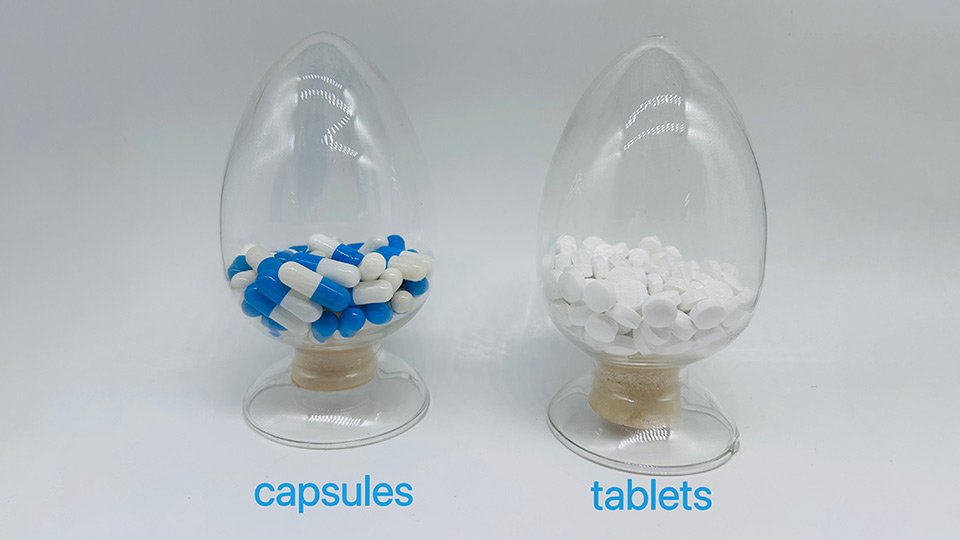
Таблетка или капсула? Когда дело доходит до выбора между таблетками и капсулами, необходимо принять рациональное решение. Внешне капсулы и таблетки различаются по форме и размеру, а также по сложности проглатывания, растворимости, внутренней доступности, чувствительности к окружающей среде и т. д. В этой статье будут проанализированы преимущества и недостатки капсул и таблеток, что поможет вам сделать более обоснованный выбор при выборе между этими двумя вариантами.
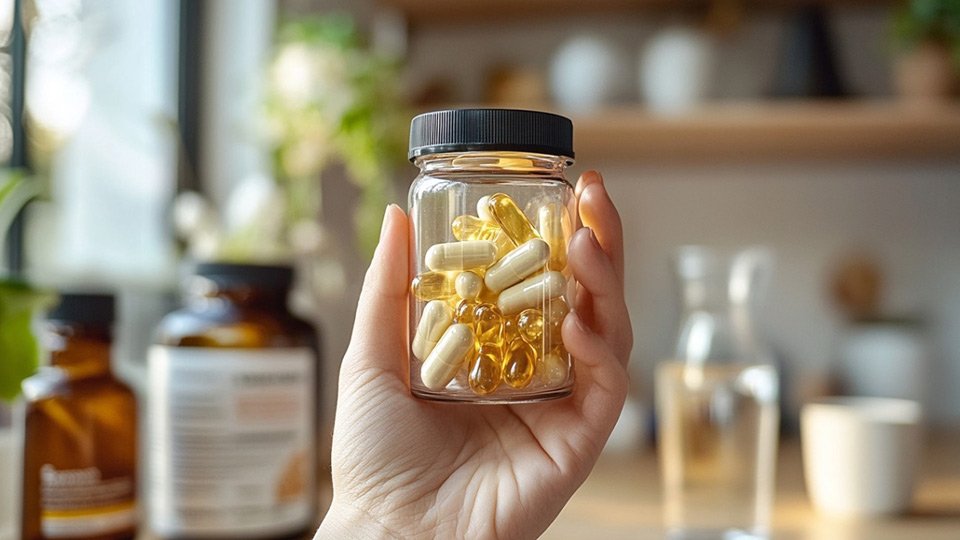

Знание основ капсул и таблеток необходимо для понимания разницы между капсулой и таблеткой.
Существует два основных типа капсул: капсулы с твёрдой и капсулы с мягкой оболочкой, которые используются для хранения порошкообразных или гранулированных ингредиентов, а также для хранения жидких лекарственных форм. Большинство оболочек капсул изготовлены из желатина, в то время как другие — из растительных материалов (подходят для вегетарианцев). Образцы этих типов капсул представлены на фотографиях ниже.
Независимо от типа оболочки, как твердая, так и мягкая, легко усваиваются, позволяя порошку и гранулам, заключенным в оболочке капсул, высвобождаться в организме. Капсулы растворимы и идеально подходят для лекарств, требующих быстрого эффекта.
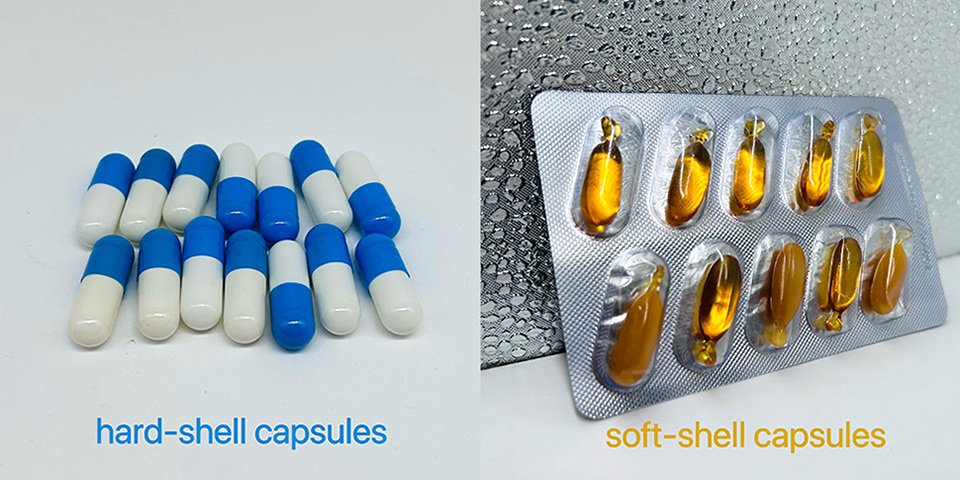
Капсулы содержат в основном ингредиенты, относящиеся к лекарственным препаратам или биологически активным добавкам. По сравнению с таблетками, в капсулах меньше неактивных компонентов, что в некоторой степени снижает риск лекарственной аллергии. Значительным преимуществом является то, что капсулы легче проглатывать, запивая водой.
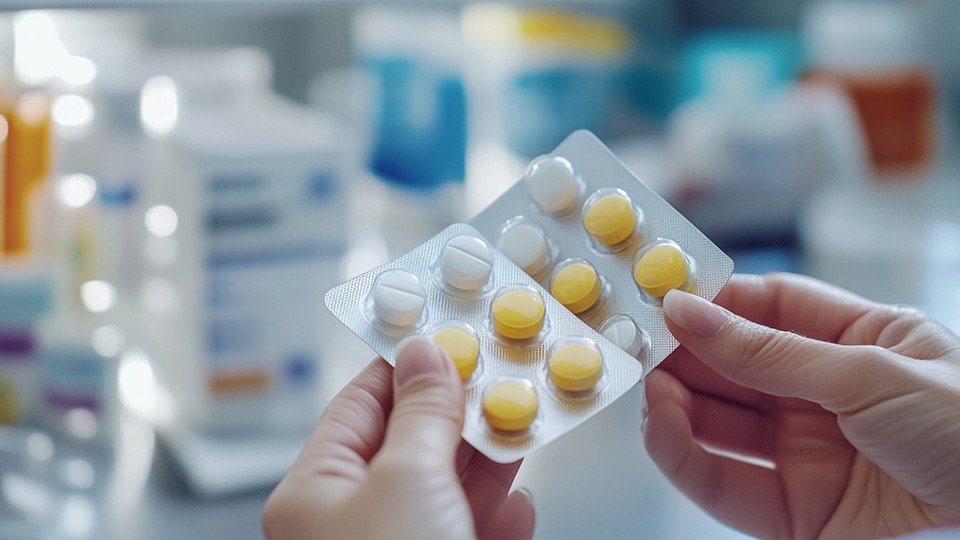
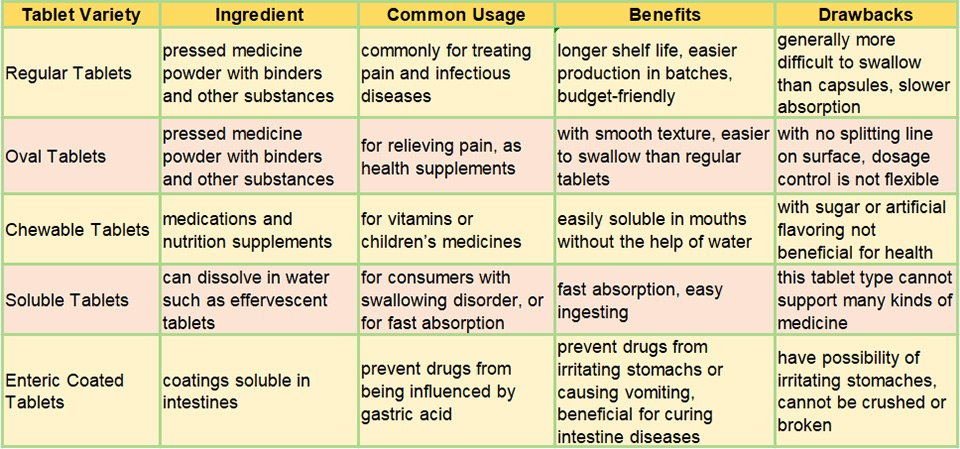
Таблетки — это твердая лекарственная форма, наиболее часто используемая в фармацевтической промышленности и производстве биологически активных добавок. Как правило, таблетки представляют собой небольшие круглые или овальные изделия, предназначенные для приема внутрь. Их производят путем прессования порошка в твердые частицы различной формы и размера.
С точки зрения состава таблетки в основном содержат активные фармацевтические ингредиенты — «АФИ», в то время как другие компоненты включают наполнители (для увеличения объема таблетки, особенно когда АФИ содержится в небольшом количестве), связующие вещества (для скрепления таблетки), дезинтегранты (помогают таблетке распадаться в желудочно-кишечном тракте, высвобождая АФИ), смазывающие вещества (для уменьшения трения между таблетками и оборудованием на этапах производства) и покрытия (для улучшения вкуса или защиты таблеток от растворения в желудке).
Таблетки удобно брать с собой, а также переносить в бумажной коробке или пластиковом контейнере. Таблетки не подвержены воздействию влаги и света, поэтому они не подвержены разложению на воздухе, что обеспечивает более длительный срок хранения и более высокую стабильность по сравнению с капсулами или жидкими препаратами.
Что касается капсул и таблеток, необходимо сравнить эти две формы, и сравнение преимуществ и недостатков капсул и таблеток имеет множество аспектов. Давайте ознакомимся с этими аспектами и проведём чёткий анализ.
Ингредиенты, содержащиеся в оболочках капсул, являются активными фармацевтическими ингредиентами (АФИ). Капсулы содержат меньше наполнителей, связующих веществ и других компонентов, которые могут вызвать аллергическую реакцию в желудке или кишечнике. По сравнению с капсулами, таблетки содержат больше наполнителей, связующих веществ и других веществ, которые могут вызвать раздражение желудка или другие аллергические реакции.
Таблетки, покрытые кишечнорастворимой оболочкой, растворяются в кишечнике, а не в желудке. Если у вас ранее были проблемы с желудком или связанная с ними аллергия, и вам необходимо принимать таблетки, лучше рассмотреть вариант таблеток, покрытых кишечнорастворимой оболочкой, которые предотвращают раздражение желудка. В целях безопасности необходимо проконсультироваться с врачом, чтобы выбрать подходящую лекарственную форму.
[если !supportLists] · Би oдоступность
Капсулы обладают более высокой биодоступностью, что позволяет быстрее устранить симптомы. По сравнению с таблетками, капсулы практически не содержат связующих веществ и не подвергаются воздействию давления на оборудовании на этапе производства, поэтому они быстрее распадаются в желудке. Желатиновые оболочки растворяются в пищеварительном тракте, а активные действующие вещества быстро высвобождаются после растворения, что обеспечивает более эффективное высвобождение препарата и более быстрое наступление эффекта. В связи с этим таблетки абсорбируются медленнее.
Представьте, что вы простудились рано утром и вам нужно утром идти на работу. Капсулы от простуды и гриппа идеально подойдут. Они также идеально подходят для обезболивающих, быстро снимая боль.
В отличие от капсул, таблетки разработаны для длительного высвобождения, обеспечивая постоянную эффективность препарата. Если вам не нужен мгновенный эффект, а требуется длительный эффект в течение дня, вам подойдут таблетки. При хронических заболеваниях, таких как диабет и эктиреоз, таблетированная форма является лучшим выбором для хранения лекарств.
· Корректировка дозировки
Капсулы невозможно раздробить или разделить, что затрудняет корректировку дозировки при необходимости уменьшения количества АФИ. Для сравнения, таблетку легко раздробить или разделить, что позволяет гибко корректировать дозировку. Например, дозировку таких препаратов, как тироксин и амоксициллин, необходимо корректировать в соответствии с потребностями пациентов на разных стадиях заболевания.
Кроме того, если вам требуются высокие дозировки, таблетки могут оказаться лучшим вариантом, поскольку они могут содержать больший объем лекарства, чем капсулы.
· Трудность глотания
Благодаря гладкой текстуре оболочки капсул глотать их легче, чем таблетки. Некоторые таблетки могут быть немного затруднительны из-за их большого размера.
· Вкус
Поскольку лекарственные вещества заключены в оболочку, капсулы не имеют вкуса, что позволяет избежать горечи лекарств. Для сравнения, многие таблетки имеют горький вкус, не столь приятный для полости рта.
· Чувствительность к окружающей среде
Капсулы более чувствительны к таким факторам окружающей среды, как влага и тепло, и имеют более короткий срок годности. Таблетки же, напротив, невосприимчивы к теплу, свету и влажности, поэтому их срок годности дольше, и их легче хранить.
· Учет диетических предпочтений
Большинство оболочек капсул изготовлены из желатина — белкового вещества, получаемого из кожи и костей животных. Не все оболочки капсул имеют растительную основу, что вызывает неприятие у вегетарианцев и веганов. Если вы вегетарианец, таблетки могут быть лучшим выбором.
· Стоимость покупки
Как правило, капсулы стоят дороже таблеток, при этом капсулы более эффективны, обладают более быстрой абсорбцией и более высокой биодоступностью. Поэтому сравнительно дорогие капсулы оправдывают свою цену. Таблетки дешевле. Например, для таких препаратов, как рифампицин и ацикловир, капсулы дороже таблеток.
Для фармацевтических производителей производство таблеток обходится дешевле, чем производство капсул, благодаря технологическому процессу. Таблеточные прессы работают быстрее, что снижает затраты при массовом производстве. Для сравнения, производительность одной из высокопроизводительных капсулонаполняющих машин составляет около 460 000 капсул/ч, а производительность одной из самых быстрых таблеточных прессов — более 2 000 000 таблеток/ч.
Rich Packing предлагает серию полностью автоматических наполнение капсул и таблеточные прессы с максимальной производительностью 468 000 капсул/ч и 2 700 000 таблеток/ч. Мы также предлагаем комплексные решения для производственных линий, помогая вам упаковывать большие партии таблеток в блистеры и картонные коробки и налаживать успешное массовое производство. Если вам нужна помощь, свяжитесь с нами.
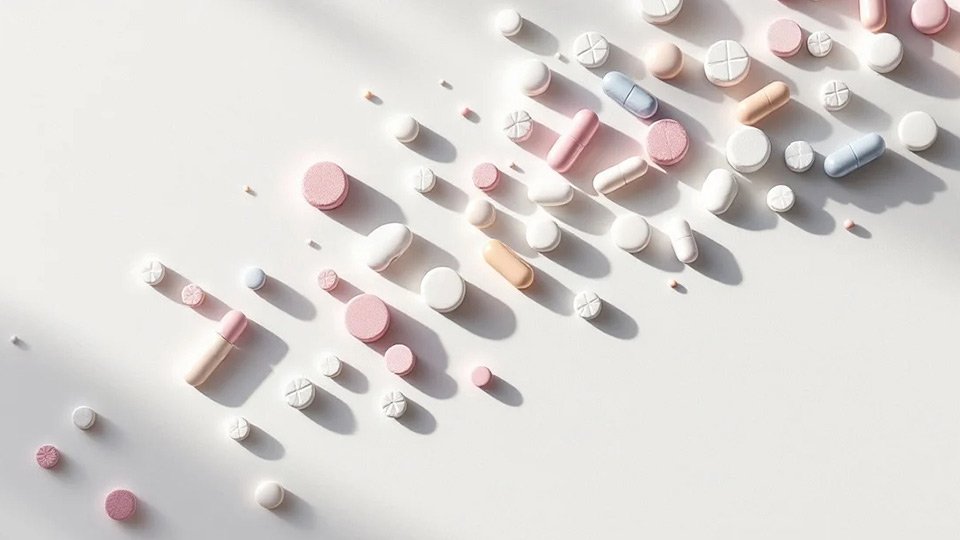
Ответ на вопрос о том, таблетки или капсулы, зависит от характеристик препарата, ваших предпочтений, а также состояния и потребностей вашего здоровья. Если вам нужны препараты, которые легко усваиваются, действуют быстрее и содержат меньше неактивных ингредиентов, вы можете выбрать капсулы. Более того, глотание и дегустация капсул не вызовут дискомфорта.
В другой ситуации, если вам необходимо пролонгированное действие лекарств и гибкость в контроле дозировки, таблетки могут подойти вам лучше. Капсулы и таблетки имеют свои определенные преимущества и недостатки. Обратившись за советом к проверенным врачам или фармацевтам, а также приняв во внимание свои потребности в области здравоохранения и личные предпочтения, вы сможете принять мудрое решение о выборе капсул или таблеток.